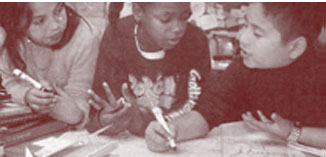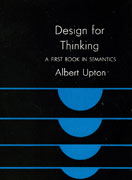



People
The people included in this section are some very important and exciting thinkers. Learn more on what they do, and how they contribute to the learning community.
Arthur L. Costa
 Arthur L. Costa, Ed.D. is a Professor of Education, Emeritus from California State University, Sacramento, where he taught graduate courses to teachers and administrators in curriculum, supervision, and the improvement of instruction.
Arthur L. Costa, Ed.D. is a Professor of Education, Emeritus from California State University, Sacramento, where he taught graduate courses to teachers and administrators in curriculum, supervision, and the improvement of instruction.
He edited the book, Developing Minds: A Resource Book for Teaching Thinking; is the author of The Enabling Behaviors, Teaching for Intelligent Behaviors and Supervision for Intelligent Teaching; and is co-author of Cognitive Coaching and Techniques for Teaching Thinking. He has also written numerous other articles and publications on supervision, teaching strategies and thinking skills.
 Arthur L. Costa and Bena Kallick, define and describe 16 types of intelligent behavior in their four book series, Habits of Mind: A Developmental Series, published in 2000 by the Association for Supervision and Curriculum Development in Alexandria, VA. Habits of Mind aid students in school and adults in everyday life as they are challenged by problems, dilemmas, paradoxes, and enigmas for which the solutions are not immediately apparent. Drawing on the Habits of Mind means knowing how to behave intelligently when you don't know the answers. It means not only having information, but also knowing how to act on it. Go to the following websites for more information:
Arthur L. Costa and Bena Kallick, define and describe 16 types of intelligent behavior in their four book series, Habits of Mind: A Developmental Series, published in 2000 by the Association for Supervision and Curriculum Development in Alexandria, VA. Habits of Mind aid students in school and adults in everyday life as they are challenged by problems, dilemmas, paradoxes, and enigmas for which the solutions are not immediately apparent. Drawing on the Habits of Mind means knowing how to behave intelligently when you don't know the answers. It means not only having information, but also knowing how to act on it. Go to the following websites for more information:
Habits of Mind website www.habits-of-mind.net
Australia Habits of Mind network website www.habitsofmind.org
Dr. Costa has made presentations and conducted workshops for educators throughout the United States and in Canada, Mexico, Europe, Africa, the Middle East, Asia and the South Pacific. He taught in the Bellflower School District, worked as a curriculum consultant in the Los Angeles County Superintendent of School’s Office, and served as Director of Educational Programs for the National Aeronautics and Space Administration for the Western States, and was Assistant Superintendent of the Sacramento County Superintendent of Schools office.
Yvette Jackson
Yvette Jackson, Ed.D. is internationally recognized for her  work in assessing the learning potential of disenfranchised urban students. Her research is in literacy, gifted education and the cognitive mediation theory of Dr. Reuven Feuerstein. She has applied her research to develop an integrated process to motivate and elicit potential in underachievers. This research was the basis for her design of the New York City Gifted Programs Framework when she was the Director of Gifted Programs. As Executive Director of Instruction and Professional Development for the New York City Board of Education, she led the development and implementation of the Comprehensive Education Plan which optimizes the delivery of all core curriculum and support services in the Public Schools of New York City.
work in assessing the learning potential of disenfranchised urban students. Her research is in literacy, gifted education and the cognitive mediation theory of Dr. Reuven Feuerstein. She has applied her research to develop an integrated process to motivate and elicit potential in underachievers. This research was the basis for her design of the New York City Gifted Programs Framework when she was the Director of Gifted Programs. As Executive Director of Instruction and Professional Development for the New York City Board of Education, she led the development and implementation of the Comprehensive Education Plan which optimizes the delivery of all core curriculum and support services in the Public Schools of New York City.
Dr. Jackson currently serves as the Chief Executive Officer of the National Urban Alliance, founded at The College Board and Teachers College, Columbia University. She works with school district administrators and teachers across the country to customize and deliver systemic approaches to literacy development through instructional practices that integrate culture, language and cognition to expand and accelerate student learning and achievement. She is a visiting lecturer at Harvard University, a member of ASCD’s Differentiated Instruction Cadre and a keynote presenter at national and international conferences.
Learn more about Dr. Jackson:
- Read excerpts from Yvette Jackson's chapter Closing the Gap By Connecting Culture, Language, and Cognition in the book Student Successes With Thinking Maps.
- Watch a video clip of Yvette Jackson in a Collegial Coaching session connecting culture, language and cognition
- Visit the National Urban Alliance for Effective Education website
Dr. Albert Upton
 Dr. Albert Upton wrote Design for Thinking (1960, Pacific Books), a theoretical text defining fundamental thinking processes based on semantics, cognitive psychology, and problem-solving during his tenure at Whittier College in California. His book offered a vision for transforming teaching and learning for every student through an explicit focus on thinking processes and language development. The Upton Model is an important model and guide with David Hyerle's development of Thinking Maps®
Dr. Albert Upton wrote Design for Thinking (1960, Pacific Books), a theoretical text defining fundamental thinking processes based on semantics, cognitive psychology, and problem-solving during his tenure at Whittier College in California. His book offered a vision for transforming teaching and learning for every student through an explicit focus on thinking processes and language development. The Upton Model is an important model and guide with David Hyerle's development of Thinking Maps®
that theoretical foundation for Thinking Maps
![]() NY Times article on Dr. Albert Upton (pdf file)
NY Times article on Dr. Albert Upton (pdf file)